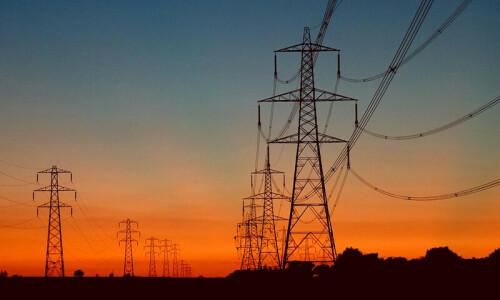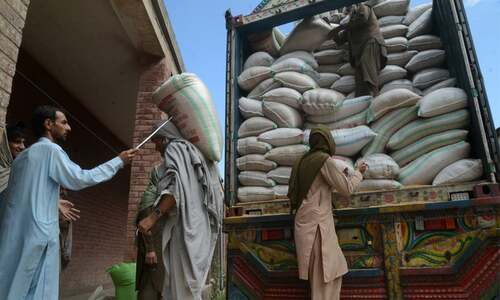• Releases damning State of Industry Report, asks govt to end cross-subsidy, taxes within tariff
• Criticises revenue-based loadshedding
ISLAMABAD: The National Electric Power Regulatory Authority (Nepra) has asked the government to abolish cross-subsidies and multiple taxes within electricity tariffs. It also urged the government to start breaking up distribution companies and introduce private sector competition down to the feeder level to enhance efficiency and reduce the unaffordable burden on consumers.
In its damning State of Industry Report 2023 released on Friday, the regulator criticised the government-sanctioned practice of revenue-based loadshedding, highlighting its detrimental impact on honest consumers who are unfairly penalised for the transgressions of others. Nepra advocated for implementing governance and technology-driven solutions to address these issues effectively.
The Nepra’s annual flagship report, which is required to be placed before parliament every year, highlighted critical governance, planning and operational shortcomings across the power sector’s fuel supply, generation, distribution and transmission system and advised that an across-the-board overhaul had become inevitable.
It lamented that while circular debt had been going up year after year, more than Rs900 billion was outstanding against current “running defaulters”, who enjoy electricity without paying for it, the recovery rate of bills issued had been struggling at 92pc, while system losses also remained very high.
It identified the reasons behind the higher cost of electricity in the country as the increasing cost of fuel, massive rupee devaluation, increased capacity payments, circular debt, reduced electricity usage and negative sales growth, high aggregate transmission and distribution losses, theft, fewer recoveries, varying electricity demand pattern on daily and seasonal bases, litigation and poor governance in the overall electric power sector.
Nepra also criticised the government’s policy of uniform tariff for all companies under which it charged consumers and compensated the power distribution companies (Discos) for the difference, commonly known as tariff differential subsidy (TDS).
“The practice of cross-subsidisation, where consumers of efficient Discos bear the financial burden of underperforming counterparts, inadvertently undermines efficiency and unintentionally fosters inefficiencies. This dynamic calls for urgent rectification and must be discouraged,” the regulator said.
It said the electricity bills currently involved supplementary elements like taxes, duties, fees, and surcharges, which “substantially inflate the total amount due” even though these are not integral to the core electricity charges. It demanded redesigning the billing format that should “clearly differentiate the electricity cost from these ancillary charges, encompassing surcharges, federal taxes, fees and duties”.
The regulator called for horizontal restructuring of power distribution companies to enhance competition and efficiency within the electricity distribution sector.
“By breaking up a single monopoly into smaller, more manageable units, it encourages innovation, fosters accountability, and promotes customer-centric service delivery,” it said, adding that each regional Disco could then focus on addressing the unique challenges and opportunities within its designated area, leading to tailored solutions and improved performance.
Horizontal restructuring would create a more level playing field for market participants, facilitating a competitive market environment by encouraging the private sector’s involvement and investment in the distribution sector, leading to advancements in technology, infrastructure, and customer service.
“Additionally, by decentralised decision-making and operations, it allows for greater adaptability to local conditions and needs,” the Nepra report said.
Published in Dawn, February 3rd, 2024













































Dear visitor, the comments section is undergoing an overhaul and will return soon.